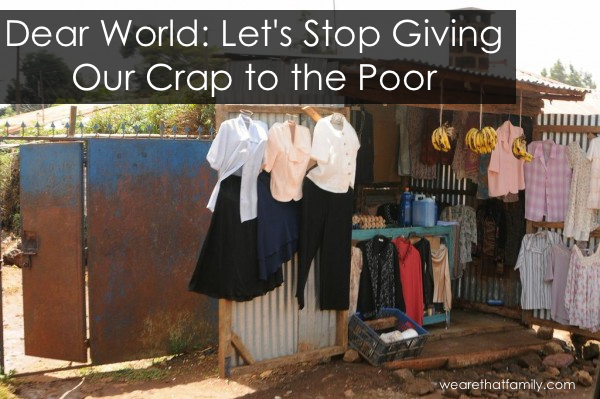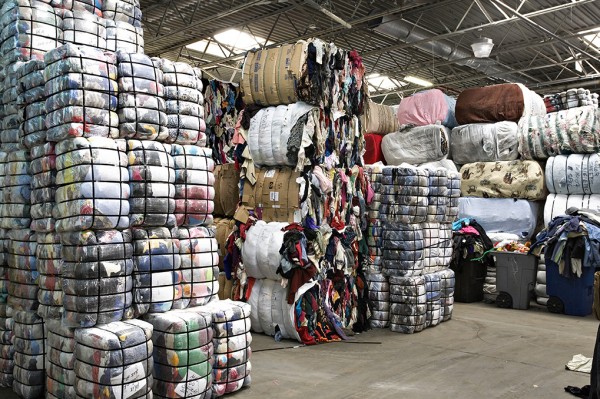I was getting ready to leave for a trip to Kenya a couple of years ago, when a church emailed and asked if Mercy House had any specific needs. I quickly responded and told them I wanted to give Maureen, our Kenyan Director, an iPhone, so we could communicate during (almost weekly) power outages. I told them if they would buy one instead, we could use the money for other needed items.
On the church’s Facebook feed a few days later, I saw an appeal that said something like, “We want to support a ministry with a used iPhone. If you have an old one you can donate, please let us know.”
I was given an older iPhone a week later. On the ground in Kenya, I realized it wouldn’t hold a charge for more than 10 minutes. The phone was junk.
So, when I left Kenya, I gave Maureen my used one that worked.
The church contacted me after the trip and asked how Maureen liked her new phone? I told them it was useless and said, “Don’t worry about it. I gave her mine.”
“Oh, we feel badly, please let us replace your phone! We want to buy you a brand new one, an upgrade. You deserve it,” I told them I used my husband’s upgrade and already had a replacement phone. “Ok. Instead we would like to write you a $500 check for the inconvenience.”
Give it to Maureen, I said.
And they did.
While the church tried to make it right, I was bothered by the fact they were more than willing to buy me a new phone I didn’t need. I have noticed this mentality permeates the Church as a whole: The poor will be happy with our leftovers. They don’t know any better. They live in Africa or Honduras, they don’t need the latest technology or the best brands like we do. They will appreciate anything we give because something is more than nothing.
Why do we give others-often those in service to the poor or the poor themselves-something we wouldn’t keep or give ourselves?
Somehow collecting clothes for immigrants has become the perfect opportunity to get rid of stuff we don’t want and gathering baby items for new moms is the perfect excuse to toss out stained and worn clothing we wouldn’t dare use again. I’ve packed suitcases with beautiful donations, but mostly I’ve pilfered through piles of junk donated in the name of Jesus.
It’s time to stop giving our crap to the poor.
There’s nothing wrong with used or second-hand. It’s often my first and favorite choice. Many organizations and ministries depend on used gifts. But if we give used, it should be our best. I’m not saying when we clean out older clothes or toys or things we don’t use any longer and donate them–that this is wrong. I am saying if we give it away, it should be something we would use ourselves.
The poor may not have wealth, but they have dignity. I’ve met people without electricity or running water who swept their dirt floors daily, pressed their clothes neatly, walked miles to work on muddy roads, dodging sewage and never had a speck of dirt on them. They value their own worth, we should too.
I’ll never forget meeting a woman in Africa who supported her large family by reselling used clothes from America. But when she held up clothes to show me what was for sale– clothes Americans had donated in clothing drives–they were tattered and stained. I was embarrassed.
Her best depended on our worst.
Just because our donation feels like we are helping, in reality, we could be hurting. Bales of used clothes are sold to African countries for resell and they end up flooding the market and often put local textile businesses and seamstresses out of business.
It’s time to think about not only what we give and how we give it, but also why we give it. Just because it makes us feel better (and cleans out our garage at the same time), doesn’t mean it’s the best for those in need. Perhaps we should look a little deeper into our hearts and wallets when we can say, I don’t have money to give to the poor, but I have a lot of stuff. Maybe we need to buy less stuff, so we have more to give?
“We’re not giving what we’re called to give, unless that giving affects how we live — affects what we put on our plate and where we make our home and hang our hat and what kind of threads we’ve got to have on our back. Surplus Giving is the leftover you can afford to give; Sacrificial Giving is the love gift that changes how you live — because the love of Christ has changed you. God doesn’t want your leftovers. God wants your love overtures, your first-overs, because He is your first love.” -Ann Voskamp
There have been times over the years, I’ve gasped and grinned at the beautiful items I’ve sorted and packed for the impoverished. When we give our best, we are living our best. We are saying with our donation, you are valuable. We are whispering with our gift, you are worthy of the best. We have the opportunity to speak self worth when we give generously.
It’s a promise for them.
It’s a promise for us.
“Whoever is generous to the poor lends to the Lord, and he will repay him for his deed.”- Proverbs 19:17
The next time we have the opportunity to share what we have with someone who is in need. let’s give from the pile we want to keep, not from the one we want to throw out.




Kristen,
I think you make a great point and I understand the “intent” of what you’re saying. We should be wise, discerning and generous. I think however, the most important part isn’t what we give but why we give. It’s like the poor widow who put in two cooper coins. Obviously, that’s going to do very little to help the church or people, in our eyes at least, but God sees the heart. God will use that and bless others, it matters not whether its old or new, little or small.